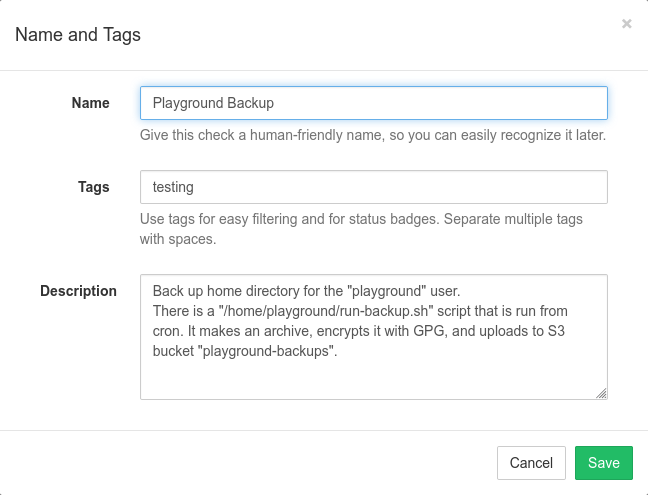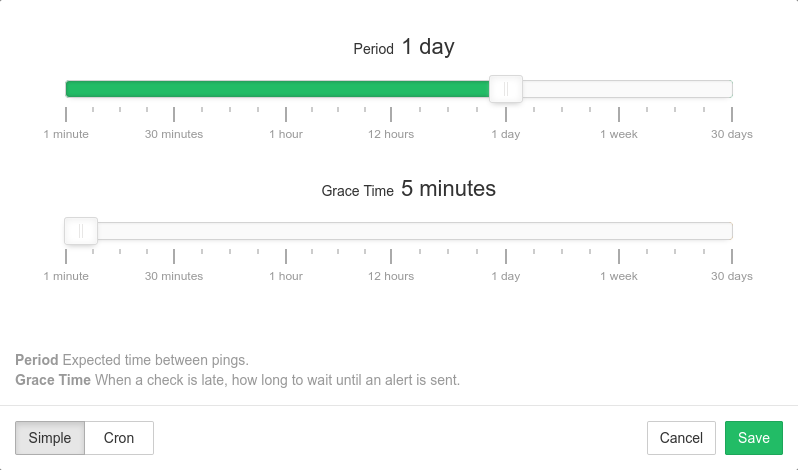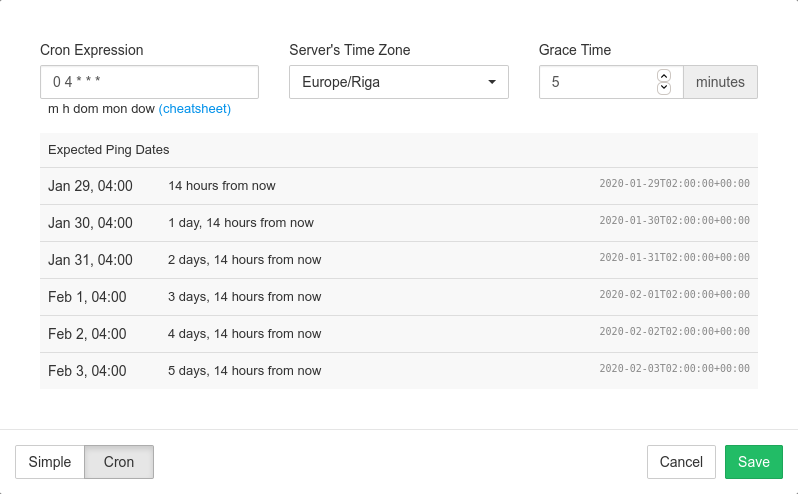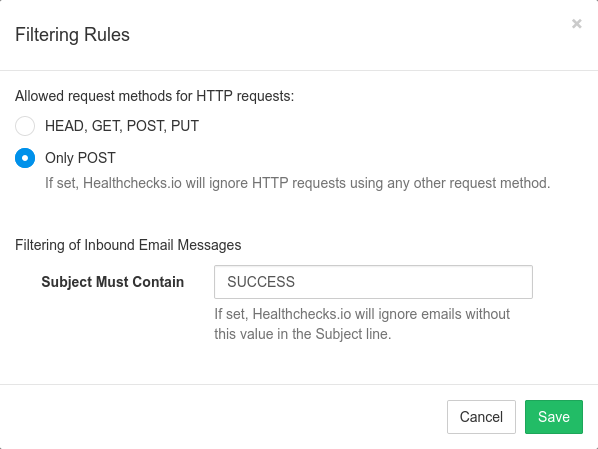Configuring Checks
In VCU TS Healthchecks, a Check represents a single service you want to monitor. For example, when monitoring cron jobs, you would create a separate check for each cron job to be monitored. VCU TS Healthchecks pricing plans are structured primarily around how many checks you can have in your account. You can create checks either in VCU TS Healthchecks web interface or by calling API.
Name, Tags, Description
Describe each check using optional name, tags and description fields.

- Name: names are optional, but it is a good idea to set them. Good naming becomes especially important as you add more checks in the account. Names are displayed in the web interface, in email reports and in the notifications that VCU TS Healthchecks sends out.
- Tags: a space-separated list of optional labels. Use tags to organize and group
checks within a project. You can tag checks by environment
(
prod,staging,dev, ...) or by role (www,db,worker, ...) or using any other system. - Description: a free-form text field with any related information for your team or for your future self: what is being monitored, who set it up, what to do in case of failures, where to look for additional information.
Simple Schedules
VCU TS Healthchecks supports two types of schedules: "simple" and "cron". Use "Simple" schedules for monitoring processes that are expected to run at relatively regular time intervals: once an hour, once a day, once a week.

For simple schedules you configure two time durations, Period and Grace Time.
- Period: the expected time between pings
- Grace Time: when a check is late, how long to wait before sending an alert. Use this variable to account for small, expected deviations in job execution times.
Cron Schedules
Use "cron" for monitoring processes with more complex schedules, and to ensure jobs run at the correct time (not just at correct time intervals).

You will need to specify Cron Expression, Server's Time Zone and Grace Time.
- Cron Expression: enter the same expression you've used in the crontab.
- Server's Time Zone: cron daemon typically uses the local time of the machine it is running on. If the machine is not using UTC timezone, you need to tell VCU TS Healthchecks what timezone to use.
- Grace Time: same as for simple schedules, how long to wait before sending an alert for a late check.
Filtering Rules

- Allowed request methods for HTTP requests: optionally require the HTTP ping requests to use HTTP POST. Use this if you run into issues of bots hitting the ping URLs when you send them in email or post them in chat.
- Subject must contain: when pinging via email, require a particular keyword in the subject line. VCU TS Healthchecks will ignore any email messages with the keyword missing. This is useful, for example, when backup software sends emails with "Backup Successful" or "Backup Failed" subject lines after each run, and you want VCU TS Healthchecks to ignore the "Backup Failed" messages.